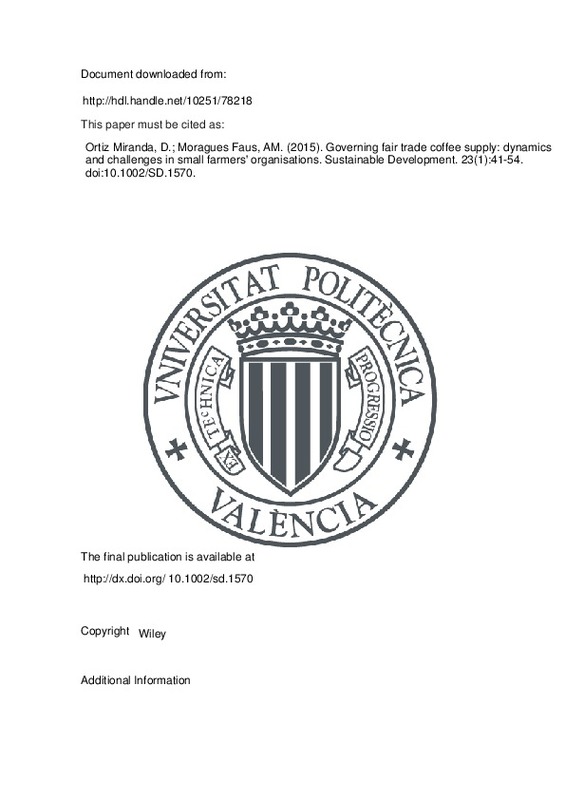JavaScript is disabled for your browser. Some features of this site may not work without it.
Buscar en RiuNet
Listar
Mi cuenta
Estadísticas
Ayuda RiuNet
Admin. UPV
Governing fair trade coffee supply: dynamics and challenges in small farmers' organisations
Mostrar el registro completo del ítem
Ortiz Miranda, D.; Moragues Faus, AM. (2015). Governing fair trade coffee supply: dynamics and challenges in small farmers' organisations. Sustainable Development. 23(1):41-54. doi:10.1002/SD.1570
Por favor, use este identificador para citar o enlazar este ítem: http://hdl.handle.net/10251/78218
Ficheros en el ítem
Metadatos del ítem
| Título: | Governing fair trade coffee supply: dynamics and challenges in small farmers' organisations | |
| Autor: | Moragues Faus, Ana María | |
| Entidad UPV: |
|
|
| Fecha difusión: |
|
|
| Resumen: |
[EN] Farmers' organizations are essential actors in fair trade certification schemes, and therefore in delivering their associated benefits for poor small-scale farmers. However, the dynamics and challenges faced by these ...[+]
|
|
| Palabras clave: |
|
|
| Derechos de uso: | Reserva de todos los derechos | |
| Fuente: |
|
|
| DOI: |
|
|
| Editorial: |
|
|
| Versión del editor: | http://dx.doi.org/ 10.1002/sd.1570 | |
| Agradecimientos: |
This paper presents some results from the research project ‘Small-scale farmers in Fairtrade schemes in Latin America: collective
action, governance and social capital’, funded by the Cooperation for Development Centre ...[+]
|
|
| Tipo: |
|







![[Cerrado]](/themes/UPV/images/candado.png)


